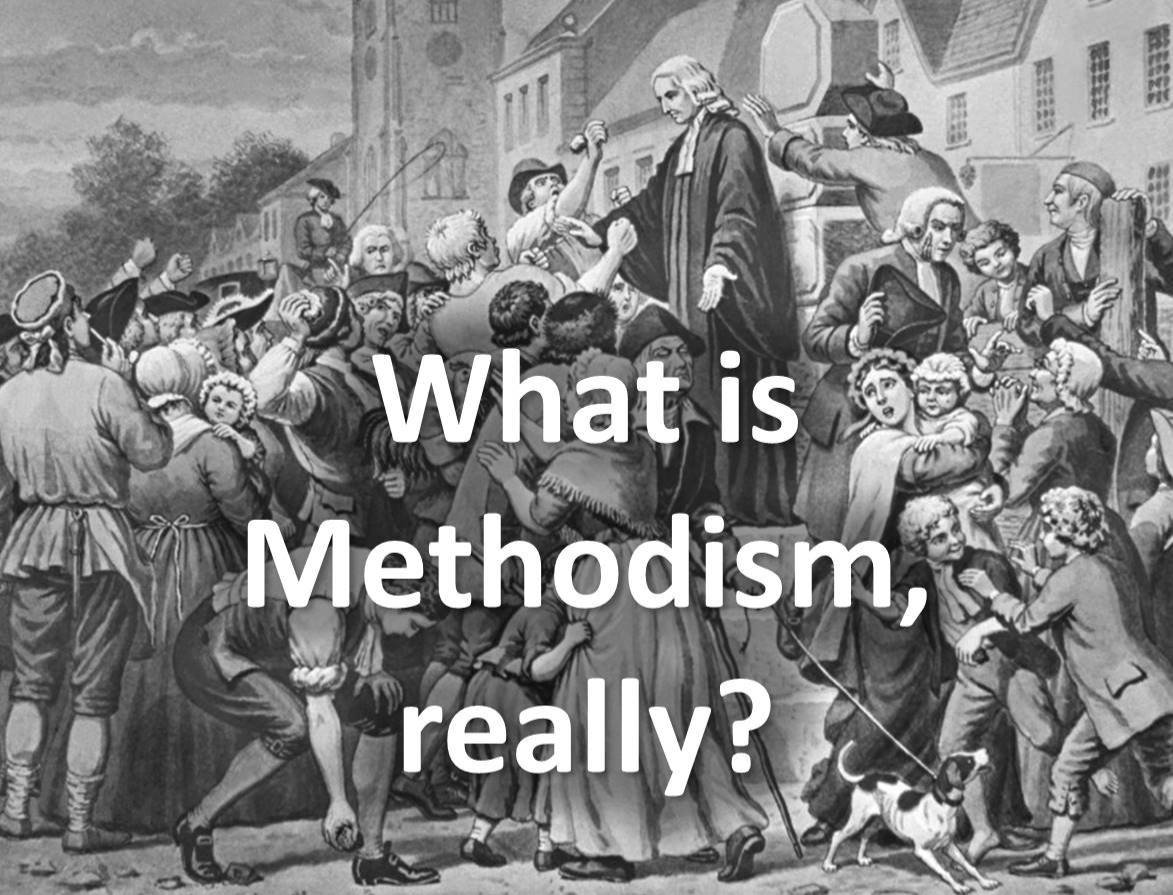What is Methodism, really?

What is the first thing that comes to your mind when you hear the word Methodism?
Many Christian traditions distinguish themselves based on some core principles in which they believe. Methodists, on the other hand, generally understand their tradition in relation to their history. John Wesley, one of the key founders of our movement, identified three key rises of Methodism prior to 1739: the formation of the Holy Club at Oxford, John and Charles Wesley’s mission to the Georgia colony, and the formation of the Fetter Lane Society in London upon their return from Georgia.
The mission to Georgia is quite an interesting story, and the story of the Fetter Lane Society helps identify the Methodist connection with the Moravians (said by some to be the oldest Protestant denomination). But the Holy Club reminds us of some of the most recognized and remembered formational elements of our tradition. Learning about these early meetings helps us to understand some of our key practices. It helps us see how they are related to the way grace works in our lives and why our tradition emphasizes the process of sanctification. It also might shed some light on why my teachings often emphasize that our church practices should foster awareness moments and why it is important that we develop trusted friendships.
 So here is the story of the Holy Club. At Christ Church in Oxford in 1729 a small band of students—including John Wesley, Charles Wesley, and a few others—met regularly to share the sacraments, to encourage each other in their studies, and to spur each other on to holiness. Their meetings were times of prayer and reflection. As they learned to be radically honest about themselves and each other, their meetings became times for examining their spiritual lives and studying the Bible. They discussed what a life of faith should look like and compared this to their own lives. This development of trusted friendships led to moments of deep awareness. As I often say, “Methodism is Christianity that pays attention.”
So here is the story of the Holy Club. At Christ Church in Oxford in 1729 a small band of students—including John Wesley, Charles Wesley, and a few others—met regularly to share the sacraments, to encourage each other in their studies, and to spur each other on to holiness. Their meetings were times of prayer and reflection. As they learned to be radically honest about themselves and each other, their meetings became times for examining their spiritual lives and studying the Bible. They discussed what a life of faith should look like and compared this to their own lives. This development of trusted friendships led to moments of deep awareness. As I often say, “Methodism is Christianity that pays attention.”
Eventually, they began to be aware not only of their own spiritual needs, but the needs of the community around them. This band of  trusted friends began feeding the poor, visiting prisoners, and teaching orphans. They began to see that faith was about more than salvation in terms of life after death. They began to see that faith is meant to be an adventure best taken with trusted friends. They began to see that God’s grace changes everything—their lives and the lives of those around them. As the grace of God began to work in their lives, they started paying attention.
trusted friends began feeding the poor, visiting prisoners, and teaching orphans. They began to see that faith was about more than salvation in terms of life after death. They began to see that faith is meant to be an adventure best taken with trusted friends. They began to see that God’s grace changes everything—their lives and the lives of those around them. As the grace of God began to work in their lives, they started paying attention.
I am so very thankful that God has brought me to Rahway, NJ and to Trinity UMC. This is an amazing city and a wonderful church community. This is an exciting time for our church family! God’s grace is on the move! As we think about what we do and why we do it, let us take to heart the things we can learn from our own tradition’s past. Let us come to see ourselves as Christians who pay attention, both to what God wants to do in our own lives and to the needs of the world around us. Let’s live like we really believe that God’s grace changes everything! And…just maybe…as people in our community think about that Methodist church in the center of town, they will begin to think, “Now that is a group of Christians who know how to pay attention!”
